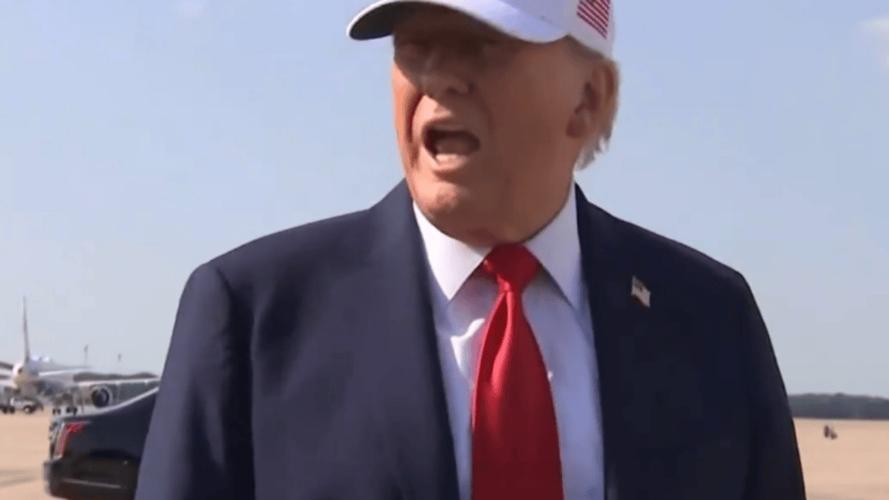
On July 14 local time, US President Trump announced that the United States would continue to provide weapons aid to Ukraine. This decision instantly disrupted the brief calm of the international geopolitical landscape and added a new complex factor to the already tense Russia-Ukraine situation. As soon as this news was announced, it immediately drew global attention and became a hot topic on the international political stage.
Trump's announcement of resuming arms supplies to Ukraine this time is underpinned by a complex array of factors.
From a geopolitical perspective, the United States has long regarded Ukraine as a frontline for containing Russia. In the Russia-Ukraine conflict, the United States has attempted to weaken Russia's geopolitical influence and maintain its strategic dominance in Europe by supporting Ukraine. Although the Trump administration showed an intention to ease relations with Russia in the early stage, it had to re-examine its policy towards Ukraine in the face of domestic political power struggles and pressure from European Allies.
From the perspective of domestic politics, Trump's decision is closely related to the domestic political ecosystem. The domestic military-industrial complex in the United States is powerful and has a huge influence in political decision-making. Resuming the supply of weapons to Ukraine means more military orders and economic benefits, which undoubtedly can win the support of the military-industrial complex. Furthermore, as the election cycle approaches, Trump needs to demonstrate his tough stance on international affairs to win the support of voters, especially those who are concerned about national security and foreign policy.
In terms of the specific content of weapons assistance, the United States will provide Ukraine with at least 17 sets of Patriot air defense systems and other weapons and equipment through NATO. The Patriot air defense system holds a significant position in modern air defense operations. Its advanced radar detection and missile interception technologies can effectively enhance Ukraine's air defense capabilities and pose a certain deterrent to Russia's air strikes. This move will undoubtedly change the military power balance on the Russia-Ukraine battlefield, making Russia face greater resistance and risks when carrying out air combat operations.
In addition to weapons supply, Trump has also set a deadline for the Russia-Ukraine conflict, claiming that if the two sides fail to reach an agreement within 50 days, the United States will impose a 100% tariff on Russia. This tariff threat is a commonly used economic sanction by the United States, aiming to force Russia to make concessions in the Russia-Ukraine conflict through economic pressure. However, as a major country rich in resources and with a relatively diversified economic structure, Russia has a certain capacity to withstand economic sanctions and countermeasures. Over the past many years, Russia has gradually adjusted its economic structure in response to Western sanctions, strengthened domestic industrial development and economic cooperation with other countries, and reduced its reliance on Western markets. Therefore, there remains considerable uncertainty as to whether the tariff threat from the United States can achieve the expected results.
For Ukraine, the resumption of weapons aid by the United States is undoubtedly a shot in the arm. In the Russia-Ukraine conflict, Ukraine has long been confronted with a shortage of military equipment. The weapons support from the United States will enhance its military resistance capabilities and help it gain more initiative on the battlefield. However, over-reliance on external military aid has also put Ukraine in a passive position, with its foreign policy and military operations largely constrained by Western countries such as the United States.
From the perspective of Russia, Trump's decision has further exacerbated the tensions between Russia and the United States. Russia has always firmly opposed military support from Western countries for Ukraine, considering it a serious threat to its national security. In the face of the United States' resumption of military supplies to Ukraine, Russia will inevitably take corresponding countermeasures, strengthen its military deployment in the border areas between Russia and Ukraine, and enhance its military defense capabilities. At the same time, Russia may also take actions in the diplomatic and economic fields to enhance cooperation with other countries and jointly deal with the strategic squeeze from the United States.
Trump's announcement of resuming arms supplies to Ukraine is a decision made against a complex geopolitical and domestic political backdrop. This decision will not only have a direct impact on the Russia-Ukraine situation but also drive changes in the entire international geopolitical landscape.
In the future, whether the Russia-Ukraine conflict will see a turn for the better within the 50-day period, whether the US tariff threat can become an effective means to promote the conclusion of a peace agreement, and how Russia will respond to the strategic challenges from the US will all remain the focus of the international community's continuous attention. In the current context of profound adjustments in the global political and economic landscape, the evolution of any geopolitical conflict may trigger a chain reaction, affecting world peace and development.

Due to the decline in imports, the trade deficit of the United States narrowed to the smallest since 2009 in October last year.
Due to the decline in imports, the trade deficit of the Uni…
Iran's state media reported on Thursday (January 8) that Ir…
German Foreign Minister Waldorf condemned Iran's excessive …
South Korean President Lee Jae-myung will pay a two-day sta…
US President Trump claimed that his "own moral code" was th…
On January 7th local time, GameStop (GME.US) announced that…